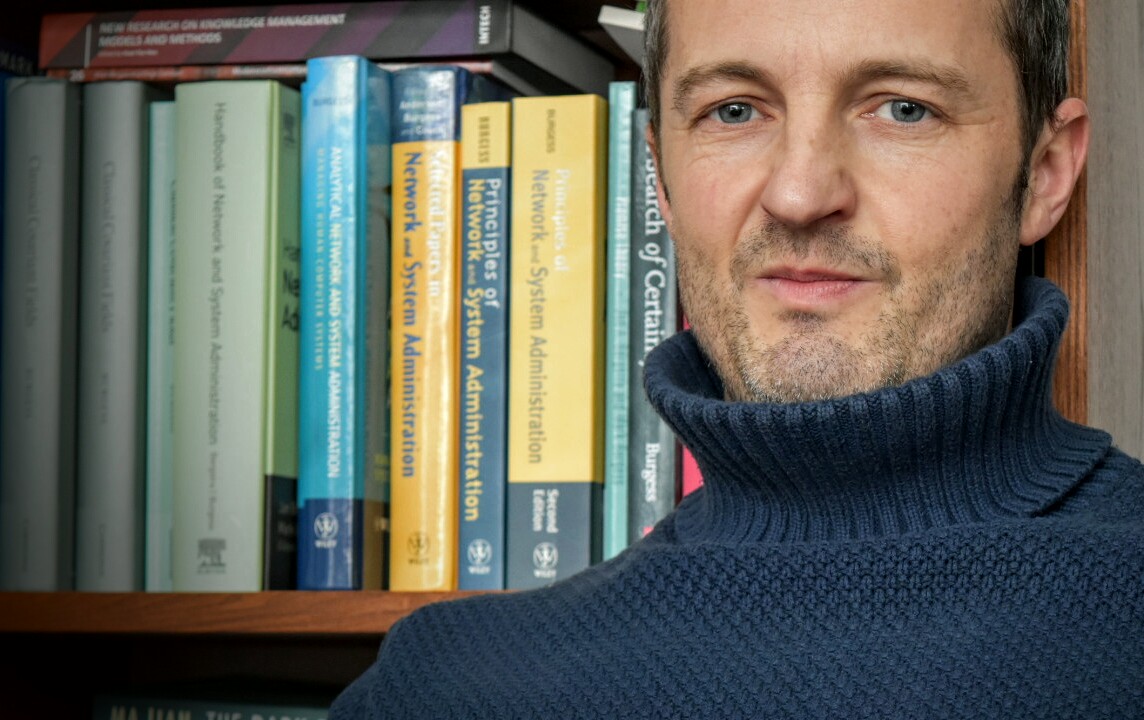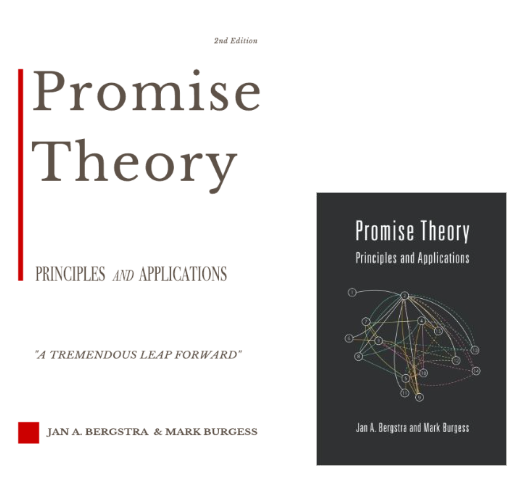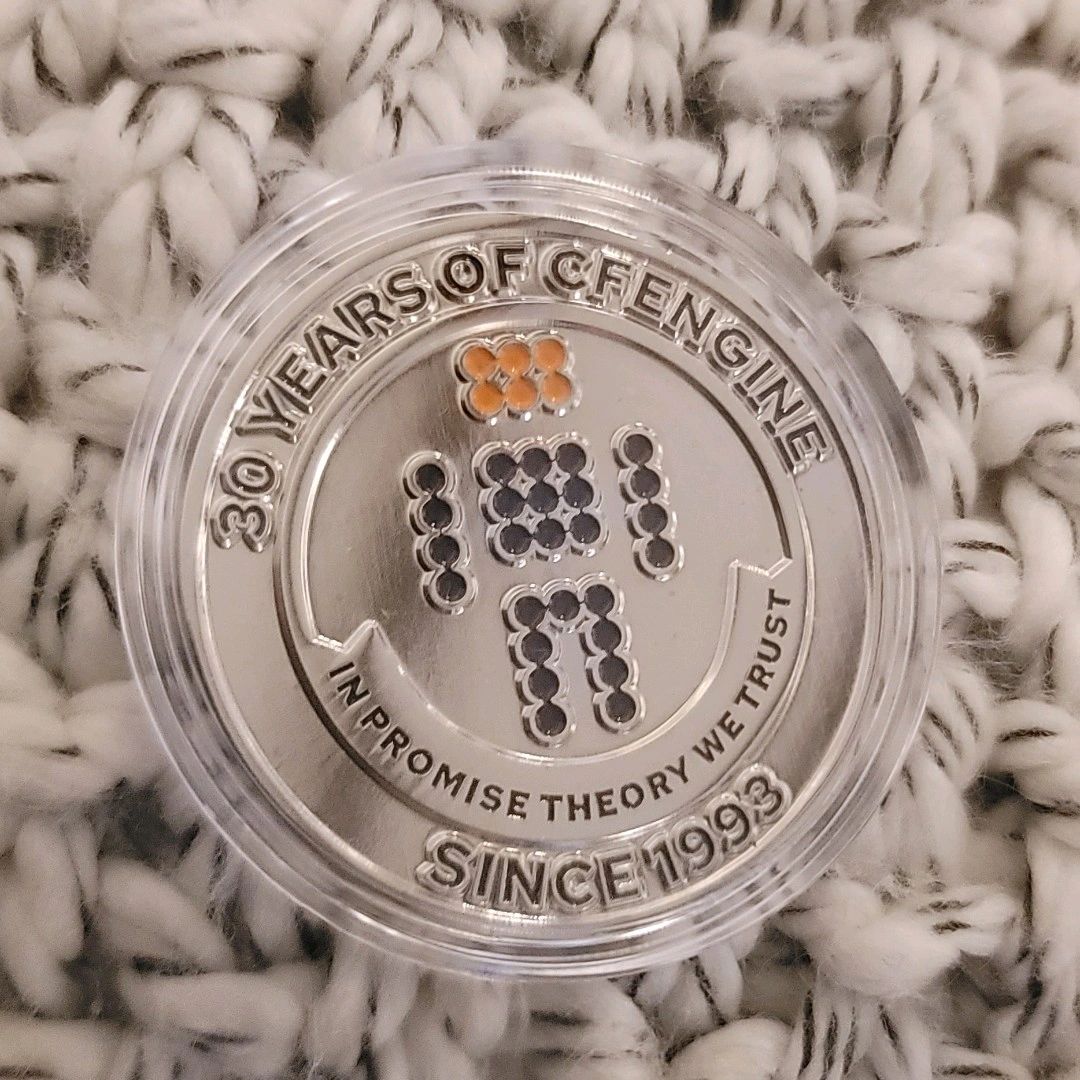The CFEngine team celebrates 30 years of CFEngine and has a chat with Mark Burgess, the original creator and author of CFEngine.

Mark delves into the early chapters of his journey, tracing back the roots of his inspiration to science fiction sagas like Star Trek and Dr. Who, and the literary works of Isaac Asimov, Aurthur C. Clarke, and Paul Davies. Mark recalled his first computer, the fabulous, most programmable, decomposable, put back together-able, expandable thing, a BBC-b microcomputer.
Mark moves on to recall his education and experience in academia, from taking courses from Paul Davies at New Castle and migration to Norway with a fellowship from the Royal Society of London to study with Finn Ravndal. He ultimately became responsible for managing a clutch of Sun workstations brought into the department by Jon Magne Leinaas, an experience that sparked ideas for simplifying automation, what eventually became CFEngine.
Impressed with scripts written by Bjorn Remseth that ran across all hosts in the university doing backups and other simple tasks Mark began trying to find a way separate the logic of environment detection from the configuration and wrote an initial version of CFEngine. After writing a SLAC preprint introducing CFEngine and presenting CFEngine for CERN Mark decided to donate the code to the GNU foundation.
Mark began lecturing about Unix and continued doing research in computing and working on CFEngine, eventually authoring Adaptive Locks For Frequently Scheduled Tasks With Unpredictable Runtimes with Demosthenes Skipitaris delivered at LISA ’97. It was at this conference that Mark became aware of the growing interest in CFEngine when the Birds of a Feather session was overflowed.
After publishing a paper on Computer Immunology while continuing to work on CFEngine Mark began to work with Jan Bergstra ultimately developing Promise Theory with it’s tenet of voluntary cooperation.

By 2007, ready for a new challenge and disenchanted with academia Mark re-focused his efforts on CFEngine, overhauling the code-base and language bringing it in closer alignment with Promise Theory and released CFEngine 3. Together with Thomas Ryd he formed a company to bring Enterprise features and support.
Mark discussed his thoughts on the wheel of time and how progress seems to be a bunch of strange loops inching forward. Many of the conversations and ideas from early CFEngine days continue to be discussed and implemented in new projects today and Promise Theory is being applied across many domains, from economics to business management. Mark also noted how Promise Theory was being used to help understand trust and mistrust, accurately predicting how mistrust fuels the coming together of people and information management on Wikipedia, interestingly also fitting Robin Dunbar’s theories on group sizes.
Mark closes with some thoughts about the future and AI and an open call for collaboration on his passion of music.

Video
The video recording is available on YouTube:
At the end of every webinar, we stop the recording for a nice and relaxed, off-the-record chat with attendees. Join the next webinar to not miss this discussion.
- 00:00:18 - An incomplete introduction to Mark Burgess
- 00:01:32 - In the beginning … (before CFEngine)
- 00:10:24 - The idea of CFEngine
- 00:25:53-00:26:45 - Technical difficulties
- 00:26:45 - The seed for Promise Theory
- 00:29:11 - The formalization of Promise Theory
- 00:40:53 - Entropenaursihip (2007)
- 00:49:04 - Knowledge Management
- 00:58:33 - Progress
- 01:03:32 - Promise Theory in other domains
- 01:08:12 - Trust & mistrust
- 01:20:08 - AI & the future
- 01:25:43 - Open call for collaboration on music
Links
- Connect on LinkedIn w/ Cody, Craig, Herman, or Nick
- All Episodes


